a fons - Barcelona laboratori
2. In depth
Barcelona, a luxury laboratory for teaching and research
The city has become an academic setting that serves to develop knowledge in a wide variety of fields
As is stated in the Pompeu Fabra University Strategic Plan 2016-2025, UPF strives to be “an urban university, focused on the challenges facing Barcelona and its surroundings, which takes advantage of the modernity and creativity available in a city open to the world as a source of inspiration to influence the University’s transformation.”
According to the document, the University should be positioned as an attractive reference point for its environment, by strengthening its ties with the powerful magnet that is Barcelona. This needs to be done while taking into account the major changes occurring in the city and the multiple dimensions of the urban phenomenon.
According to the Pompeu Fabra University Strategic Plan 2016-2025 the University should be positioned as an attractive reference point for its environment, by strengthening its ties with the powerful magnet that is Barcelona
Many projects and initiatives carried out within the University in the spheres of teaching and research exemplify how the city is used as a laboratory. Barcelona works as an urban scenario that serves to develop knowledge in the most diverse subjects and disciplines, and at the same time enhances the progress of the institution.
The city itself is, in many cases, the subject of research projects; the focus of case studies that, above and beyond the local scale, shed light on the phenomenon of globalisation and the use of new technologies. In this way, knowledge gained from local experiences, whether of a political, economic, social, scientific, technological or cultural nature, is conveyed to other more international contexts.
Explaining history through the evolution of the urban landscape
“Barcelona is an interesting case. It’s a city that enables you to teach all the periods of history very clearly, because the pieces of evidence haven’t been destroyed; or at any rate some lie on top of others, and that allows you to see from the Roman city to the most modern city,” says Antoni Luna, lecturer in the Department of Humanities.
According to this researcher, “the fact that Barcelona has three heads – it’s the Catalan capital, a Spanish city and a European city, three dimensions that sometimes interrelate and sometimes stand in contrast – makes it a very special case. You can explain the history of Barcelona and Europe at the same time, and that’s useful both for teaching classes and for doing research.”
“Barcelona is an interesting case. It’s a city that enables you to teach all the periods of history very clearly, because the pieces of evidence haven’t been destroyed"
Antoni Luna takes advantage of the city of Barcelona to conduct several fieldtrips as part of his classes for the subject Urban Geography, within the bachelor’s programme in Humanities, in which students of the UPF Senior programme often also take part; to recap the history of the city in the habitual welcome for exchange students; or for high school students taking the course “Barcelona Through Your Lens: Urban Landscapes and Photographic Narratives” in the Junior Campus setting (this July a new edition will be offered), in which the city becomes a photographic studio.
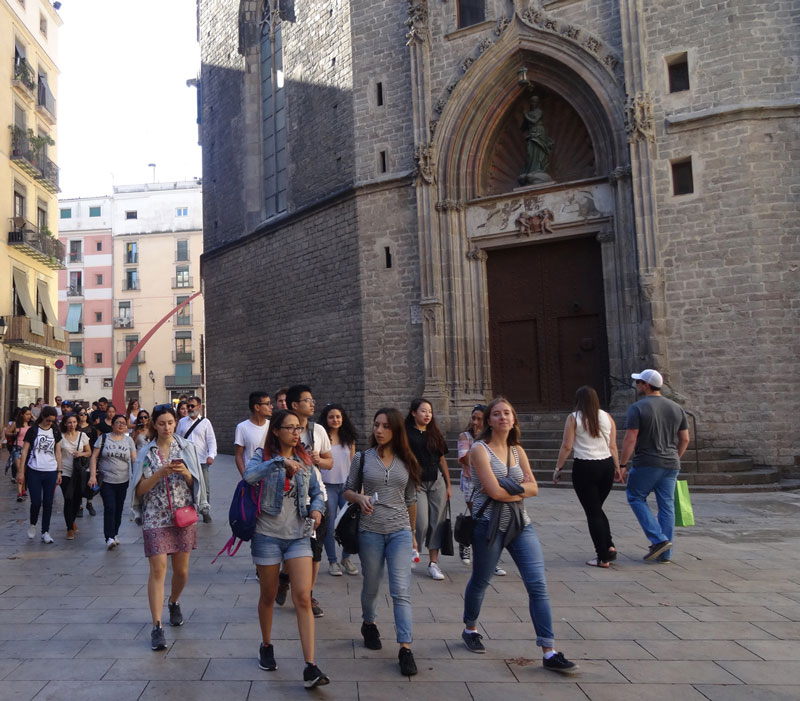
In the research sphere, the city of Barcelona is the hinge on which turns the project “The Invention of the City: Memory, Visuality and Cultural Transfer in Contemporary Barcelona”, financed by the Ministry of Economy and Competiveness, and with the lecturers Antoni Luna and Isabel Valverde as main researchers. The aim is to understand the hidden narratives that are present in the urban landscape, to see how a modern metropolis has been capable of turning itself into a worldwide reference, by analysing the process of construction or invention of Barcelona from the 19th century to the present day.
“The part that interests me most is how different parts of the city that are not usually explained have come to be built. Now I’m working on the location of the museums, how the current discourse has been created, enabling Barcelona to go from being a city practically void of an artistic heritage of its own to having the international image of a city full of artists and museums, like a Paris of the South,” says Antoni Luna. Colleagues of his focus, for example, on the location of the prisons, the theatres or the people’s athenaeums, and their findings will be set forth in a book due to be published at the end of this year.
Considering Barcelona as a laboratory for academic learning
Lucía Conte is the director of the Education Abroad Program, which each year brings more than 1,000 students, most of them from the USA, to tread the University’s classrooms and Barcelona’s streets. It is clear to her that the city is a fundamental selling point and continues to be one of the most popular destinations in Europe for foreign students, despite the crisis and the various turbulent situations of recent years, but she insists that this is not enough.
“We understand the city as a laboratory for pure academic learning, an extension of the classroom, but also for informal learning, the personal development of the students. And their stay in Barcelona, where they might be for one or two terms, gives them this educational complement on the ground. In addition, it enables them to experience the reality they study from a different viewpoint from what they have in their own country; it gives them another perspective. It’s here that they complement and round off their educational experience, and herein lies the value of coming to study in Barcelona,” she maintains.
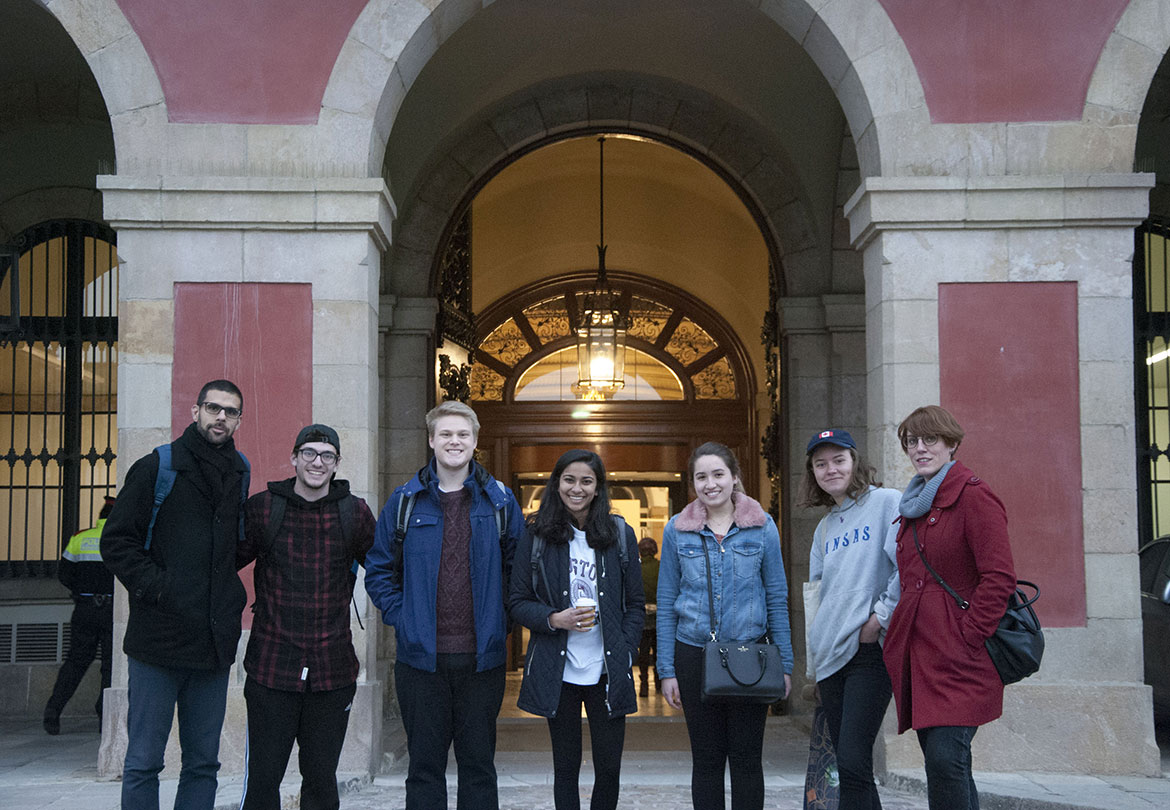
In order to bring this goal to a successful conclusion, in all the programmes for foreign students, including UPF’s Barcelona International Summer School, the city is regarded as a basic component for the students’ curricular development. “We have some subjects in which Barcelona is the case study, such as those based on the phenomenon of smart cities, and others in which it is the lead player of the discipline, such as those that focus on Barcelona as a brand, in the field of communication and advertising,” explains Lucía Conte.
According to the Education Abroad Program director, the aim is to find “consistency between the programmes and the fact of being in Barcelona, because this gives them their own identity and it makes sense to take these subjects here.” She adds: “We have an excellent faculty, which is our main asset. But the disciplines we teach at UPF are also taught elsewhere: undergoing the experience abroad – in Barcelona – and in the academic context provided by UPF makes for added value. This is why we ask our lecturers, insofar as it’s possible, to get out of the classroom, and we can say that they respond enthusiastically.”
The aim is to find “consistency between the programmes and the fact of being in Barcelona, because this gives them their own identity and it makes sense to take these subjects here.”
Foreign students can participate actively, and with total classroom integration, in phenomena that define the scientific, artistic, political, cultural or social life of the city and interact with their lead players. For example, by visiting an NGO to study immigration; by performing research projects conducted in leading laboratories and research centres; by visiting the Catalan Parliament to understand the Catalan political situation, or even more abstract topics, such as taking a walk round the Gothic Quarter to discuss the dimension of the historical memory, in subjects forming part of the Bachelor’s in Law. Furthermore, they are offered the possibility of taking a separate programme, “experiential learning”, in which the student can add six ECTS credits to this learning through experience by means of an internship in a company or institution in the city, with pre-professional added value.
‘Get to Know It, Get to Love It’, the premise of Language Volunteering
Students enrolled on the Education Abroad Program, but also all the students involved in mobility at the University, have the opportunity to take part in a very special extra-academic activity: Language Volunteering. “The aim of the schedule of Language Volunteering visits and trips is to for international students on a stay at UPF to get to know Barcelona and the rest of Catalonia. Our basic premise is very clear and simple: you can’t love what you don’t know,” says Albert Servitje, coordinator of this welcome programme set up in the 2000-2001 academic year and coordinator of the UPF Language Office.
"The aim of the schedule of Language Volunteering visits and trips is to for international students on a stay at UPF to get to know Barcelona and the rest of Catalonia"
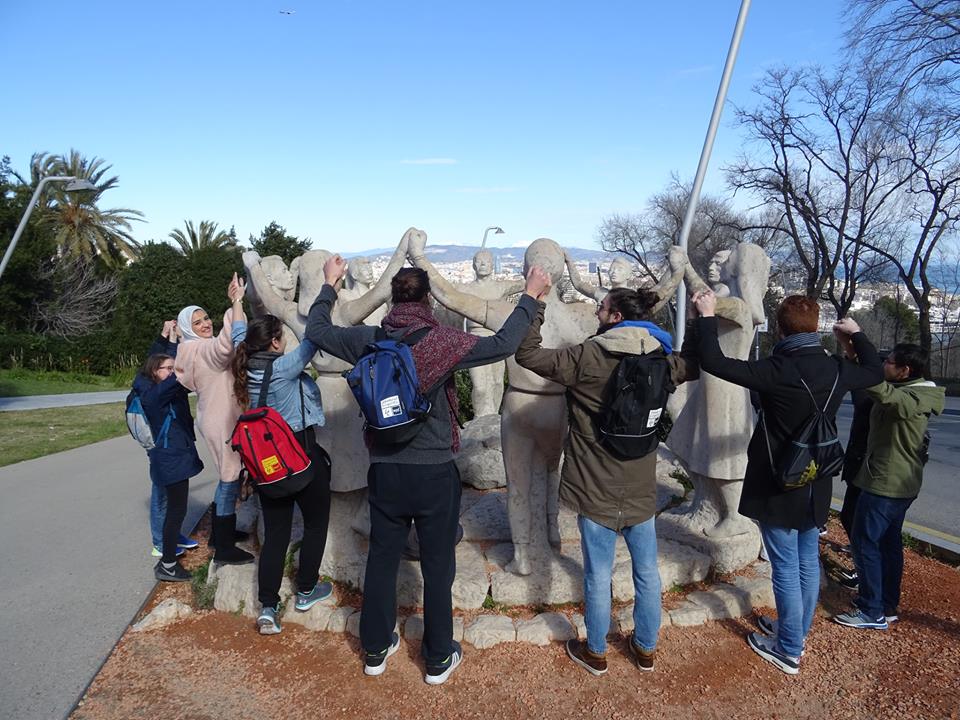
According to Albert Servitje, the activities or visits, which are held every Saturday over the thirty class weeks of the academic year, are intended to cover the maximum number of places and fields of Catalan culture and the Catalan nation, including the main neighbourhoods and points of interest of Barcelona (such as the modernista Eixample, Gràcia and the air raid shelter in Plaça del Diamant, Barceloneta, Montjuïc, Tibidabo and Collserola hills), a tour of Picasso’s and Miró’s Barcelona, or a trip on a catamaran to sail along the city’s coastline, among others.
“Barcelona has appeal – that goes without saying. In a recent world ranking it was judged to be the third best city in Europe to live in, after London and Paris, and eighth in the world, and that’s so for several reasons that reinforce each other. For international students who have spent time here, Barcelona will always remain in their hearts; it’ll be part of their identity. When they hear the name Barcelona they’ll feel that in a way it was their city,” says Albert Servitje.
Understanding how people move is fundamental
It is becoming increasingly clear that urban mobility is a fundamental issue for citizens’ economy, health and wellbeing. This is the opinion of Xavier Binefa, lecturer and coordinator of the Cognitive Media Research Group in the Department of Information and Communication Technologies (DICT): following on from a bachelor thesis produced by engineering students at the University, which compiled information about how people got to campus, he conducted a study focusing on mobility in the 22@ district, in collaboration with Barcelona City Council.
“The students’ thesis revealed some very significant data, such as the huge impact the bicycle could have if enough parking space were made available, because maybe 40% of students could get to the Poblenou Campus using this mode of transport, and this was one of the pieces of information that surprised me. So we decided to analyse what it would imply to have the tram go down Diagonal, and we saw that the effect would be overwhelming. After that I talked to the City Council, and we went ahead with this study, conducted on the basis of 2,000 interviews, to find out how people come and work or study in 22@.
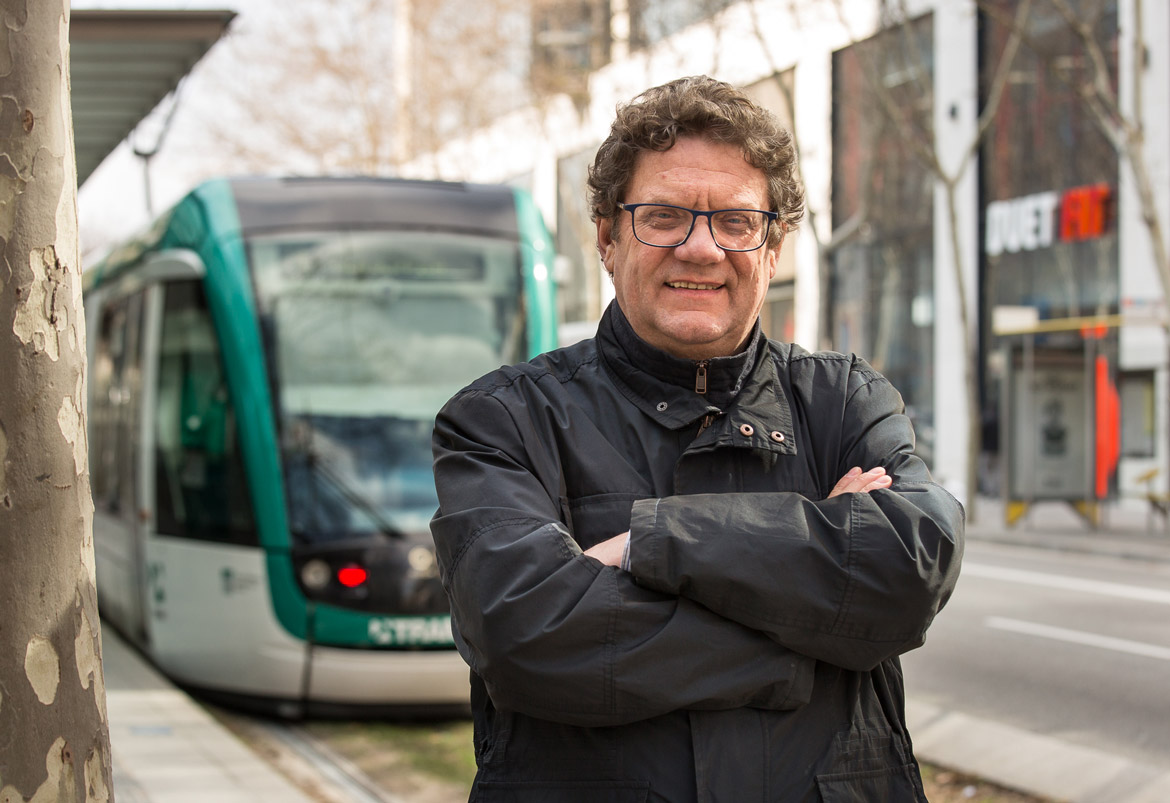
The study “Compilation of data to analyse the mobility needs of 22@. Effect of connecting tram networks along Avinguda Diagonal”, conducted by Xavier Binefa together with Oriol Martínez and Pedro Vilchez, showed that the tram would make a substantial improvement, in both travelling time and ecological impact (distance). Some of the conclusions were that people who come by public transport would save six minutes on each journey (six one way and six the other) by using the tram; each person would travel approximately 1.5 kilometres less around the city, and this would affect over 30% of workers in 22@; and as far as car users are concerned, more than a fifth would take less time if they came by public transport, basically tram, with an average saving of four minutes per journey.
The study showed that the TRAM would make a substantial improvement, in both travelling time and ecological impact (distance)
“In the Barcelona Metropolitan Area around 3,500 people die every year from the effects of pollution, caused basically by traffic, which means an average of ten deaths per day; I don’t know if we could stand anything else that involved paying such a high price in human lives. If we push green and public transport, these figures could decrease considerably. It’s a pretty brutal state of affairs, to the extent that it’s made me and other people think that mobility is an issue of paramount importance,” emphasises Xavier Binefa, who also participates in the preparation of a project in the framework of the European Union, focusing on technologies applied to urban mobility, in which Barcelona forms part of a candidature, together with a group of other European cities, that will be decided on in July.
Mobility is also one of the areas that lie at the centre of the Bachelor’s in Mathematical Engineering in Data Science, which has been launched for the first time this academic year 2017-2018, and is coordinated by Xavier Binefa. “Our idea is for the students to work with data that form part of real problems, many of them located in the city of Barcelona. Mobility is one of them, but so are housing, health and entrepreneurship. We’re looking for stakeholders who have current data of all kinds – texts, numbers, videos, audios and so on – that our students can analyse, and using them, be able to extract information, create models and put forward proposals,” Binefa explains. This is being done through the creation of groups of students who work on small-scale funded projects, in the context of the María de Maeztu research excellence programme, in which the whole of the DICT is involved.
The city, the informational framework for creating journalistic content
“The subject Integrated Newsroom Workshop, which belongs to the third year of the Bachelor’s in Journalism, is the result of a proposal that dates back to the days when the course was taught as a second-cycle long degree, when we detected that journalism was shifting towards an integrated newsroom, with interrelation between different media,” says its coordinator, Josep Rovirosa.
This model, which was implemented in its totality with the move to the Poblenou Campus and the change from the long degree to the bachelor as a result of Bologna, involves interrelating with the city in many ways, according to Josep Rovirosa. This lecturer in the Department of Communication stresses that the classroom becomes a workshop, a veritable newsroom, where students put into practice the knowledge and theoretical content acquired through other subjects.
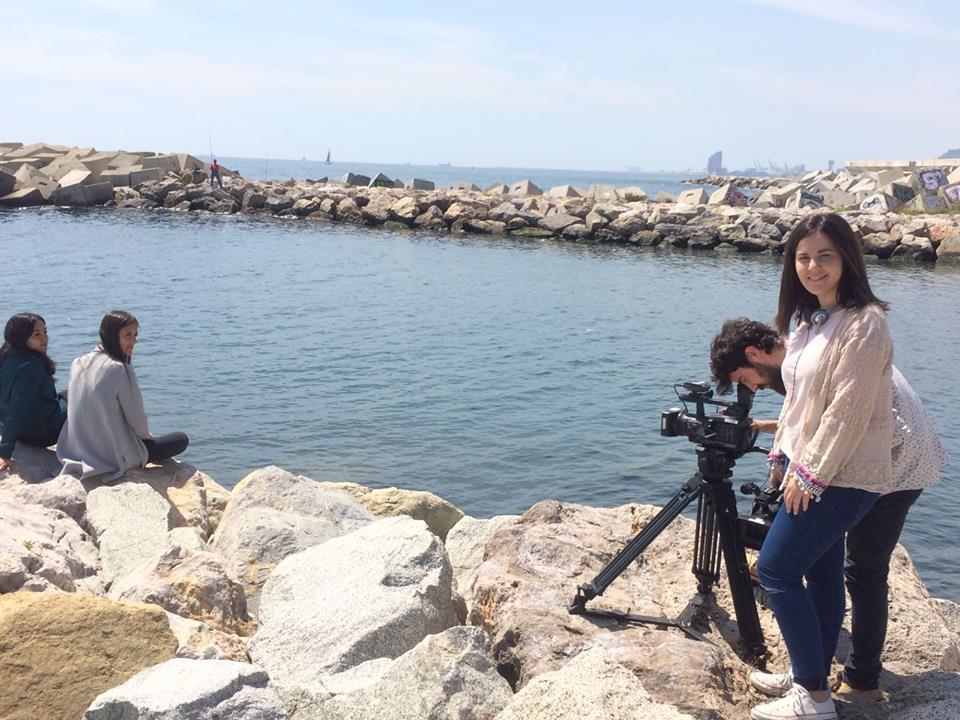
“The informational framework of the various products that are made is the city, on the basis of a multifaceted current affairs scenario, following the journalistic paradigm, which states that current affairs rule,” says Josep Rovirosa. And he adds: “The reports we prepare are about the city. Everything that happens in Barcelona is amenable to becoming informational material; the city serves us as a setting. But at the same time we serve the city, because our product isn’t just an exercise that stays in the classroom – it breaks out into the outside world, because several Barcelona media, and therefore their audiences, benefit from our work.”
The reports we prepare are about the city. Everything that happens in Barcelona is amenable to becoming informational material"
The media for which content is produced are television, press, radio and internet. The products that are prepared include, for television, a magazine show every seven weeks, broadcasted on Betevé; for radio, programmes that can be heard on Betevé Ràdio; for press, the supplement Cetrencada, which is included monthly in the daily newspaper El Punt Avui, and for internet, the reports published in the digital medium Vilaweb. “The students particularly enjoy the practical activities, although the theoretical part is essential and necessary. In our case, interaction between the students, the media and the street is very fresh,” concludes Josep Rovirosa.
A platform for knowledge on good governance and public policies
Barcelona’gov is a network of centres for research and advanced training in government and governance, created at the end of 2014 to promote a platform of knowledge and excellence in public policies in general and urban policies and management in particular. The network, located in Barcelona, is aimed primarily at professionals and actors involved in the present system of urban governance, and comprises the Institute of Government and Public Policy (IGOP) of the Autonomous University of Barcelona (UAB), the Department of Political and Social Sciences of UPF and the Barcelona Institute for International Studies (IBEI), in partnership with Barcelona City Council.
According to Miquel Salvador, Dean of the Faculty of Political and Social Sciences of UPF and member of the academic coordination committee of Barcelona’gov, “due to its orientation and strategy, and through its link with the city, the network propounds the deployment of a series of training and research actions designed and developed with the local world and the urban environment in mind. This takes the shape of reflections on social public policies, open government and transparency and the international projection of cities, focusing on the experience of Barcelona, among others.”
"the network propounds the deployment of a series of training and research actions designed and developed with the local world and the urban environment in mind"
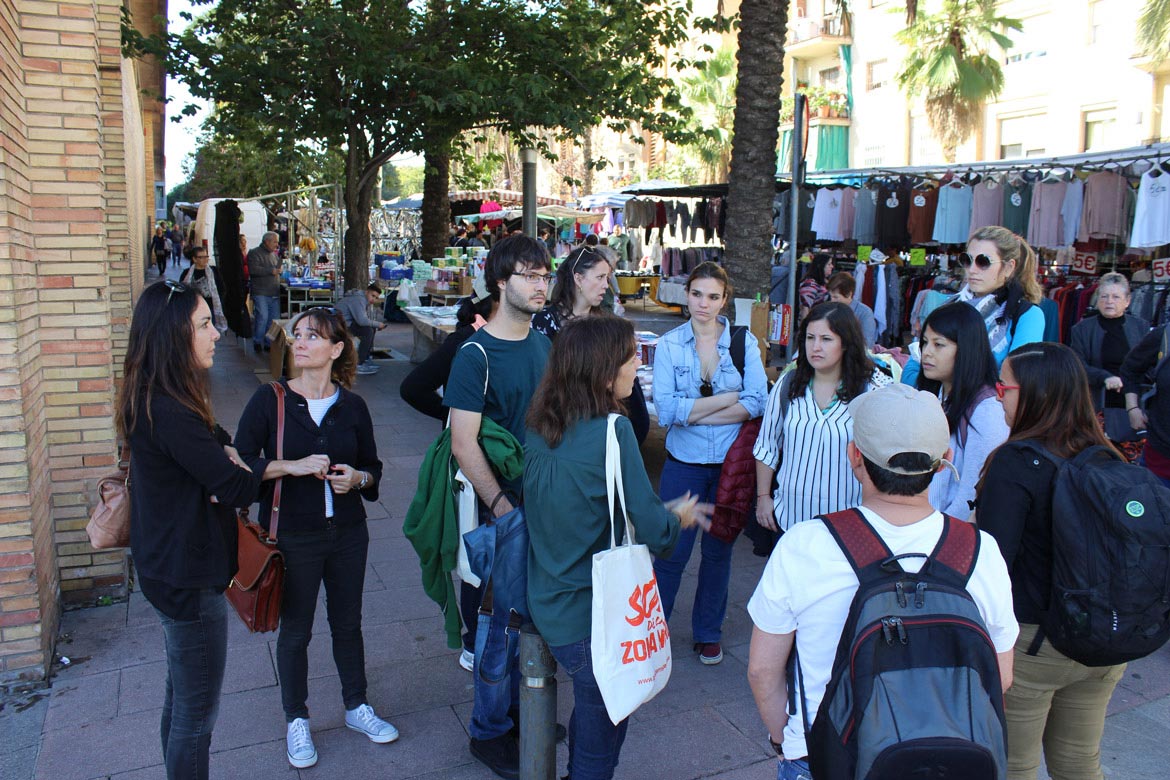
Barcelona, in this project, “represents a clear and widely recognised reference that serves to contrast concepts and innovation experiences in public policy and urban governance, providing a basis for both training and research activities and at the same time allowing synergies between the different institutions involved,” adds Miquel Salvador. Thus, lessons drawn from the experience of the city of Barcelona help to build capabilities to improve the design and development of various initiatives in this field and enable the participants to combine classes with guided visits to see firsthand some of the topics dealt with in the sessions.
Professor Salvador highlights the fact that the results of the academic reflection processes that take place in the framework of the network return as improvements to the teaching and applied research activities carried out at UPF. “The Barcelona’gov actions promoted by our department involve students of the bachelor’s programme of Political and Administration Sciences and that of Philosophy, Politics and Economics. In terms of research, the network has made it possible to strengthen collaboration on a number of projects that have public policies and the public management of the city as shared points of reference,” he notes.
